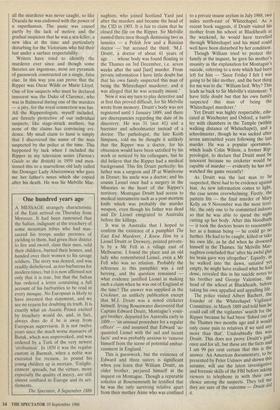One hundred years ago
A MESSAGE strangely characteristic of the East arrived on Thursday from Morocco. It had been rumoured that the Sultan, indignant at the treachery of some mountain tribes who had mas- sacred his troops under pretence of yielding to them, had given their district to fire and sword, slain their men, sold their children, burned their houses, and handed over their women to his savage soldiers. The story was denied, and was readily disbelieved, as too barbarous for modern times; but it is now affirmed not only that it is true, but that the Sultan has ordered a letter containing a full account of his barbarities to be read in every mosque. No European is likely to have invented that statement, and we see no reason for doubting its truth. It is exactly what an Asiatic Prince excited by treachery would do, and, in fact, always does do if he is away from European supervision. It is not twelve years since the much worse massacre of Batuk, which was unprovoked, and was ordered by a Turk of the very newest 'civilisation'. In 1850 it was the regular custom in Burmah, when a noble was executed for treason, to pound his young children up in mortars. 'Enlight- enment' spreads, but the virtues, more especially the quality of mercy, are still almost confined to Europe and its set- tlements.
The Spectator, 8 September 1888






















































 Previous page
Previous page